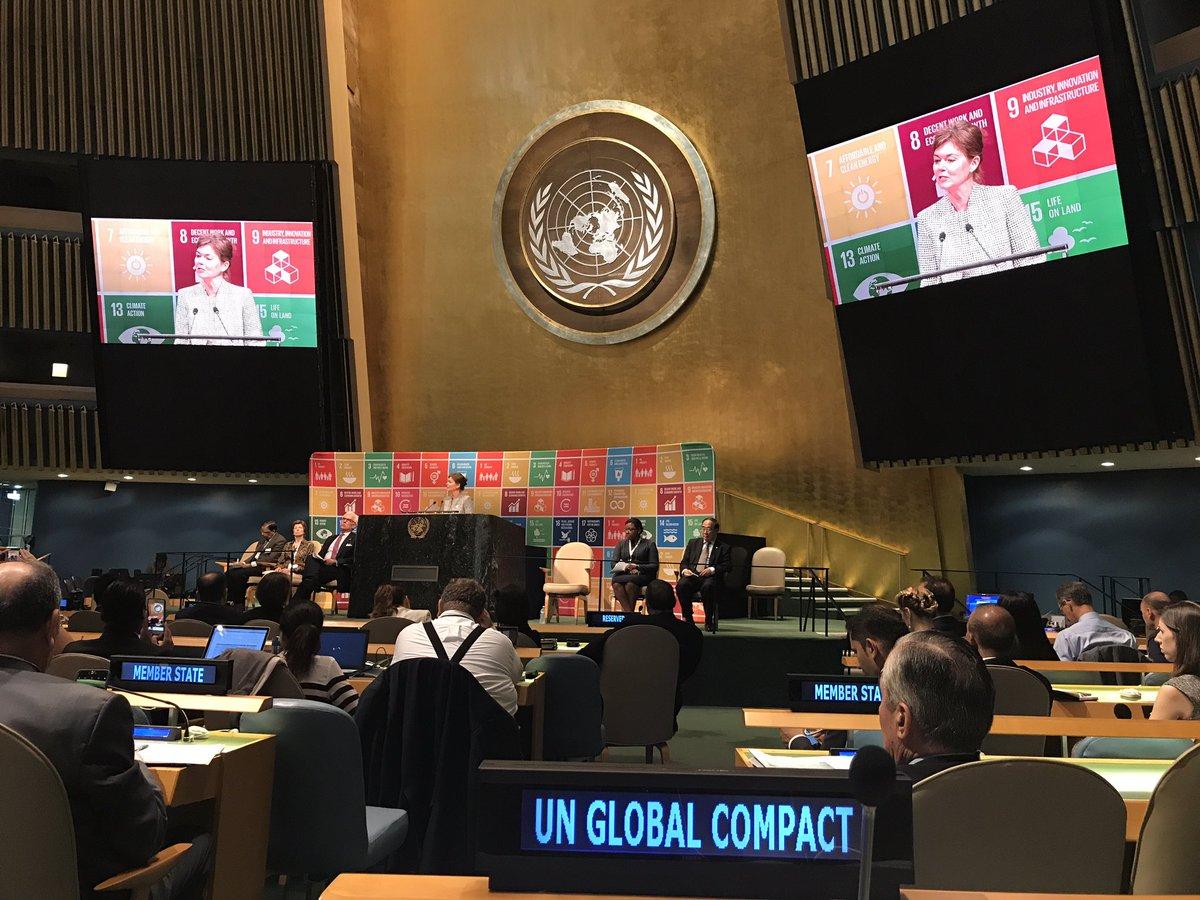UN Global Compact Provides Platform for Business Leaders to Take Action on the SDGs

NEW YORK, July 20, 2017 /3BL Media/ – The United Nations Global Compact brought together leaders from business with representatives from government, the UN, civil society and academia to highlight private sector commitment to take action on the Sustainable Development Goals (SDGs) at the High-level Political Forum on Sustainable Development (HLPF) – the annual platform for reviewing progress and guiding global efforts on the achievement of the SDGs by 2030.
Co-hosted by the UN Global Compact, the UN Department of Economic and Social Affairs and the International Chamber of Commerce, with the support of the Global Business Alliance for 2030, the 2017 SDG Business Forum on 18 July recognized the critical role of business in delivering on the promise of sustainable and inclusive development.
Speaking at the SDG Business Forum High-Level Luncheon, UN Secretary-General António Guterres encouraged the business community to see the Sustainable Development Goals as an opportunity to “participate in dialog with other sectors of society in building a common project, in building a common approach, in which the combined efforts of everybody can guarantee that the goals are implemented.”
The UN Secretary-General highlighted the important role the private sector can play in providing financial solutions to help achieve the SDGs, ensuring that labor markets are prepared to adapt to future technologies, advancing the green economy, and engaging in multi-lateral platforms of dialog to address issues around migration, fragility, and achieving SDG 16 including advancing the rule of law and good governance, fighting corruption, and building conditions for the cohesion of society.
Forum co-chair, Lise Kingo, CEO and Executive Director of the UN Global Compact, noted that the rate of progress on the SDGs in many areas is far slower than needed to meet the targets by 2030. “We have to act now and we have to act together,” said Kingo. “We need to get the fundamentals rights. Only then can we deliver all of the 17 Goals, everywhere — leaving no one behind.” She followed up on her commitment from the previous year to track and measure business impact on the SDGs, announcing, “We have now finalized a comprehensive analysis of the goals and targets and what they mean for business, and in September we will launch a new framework for how businesses can set targets and report on the SDGs.”
On 17 July, the UN Global Compact, together with the UN Economic Commission for Latin America and the Caribbean (ECLAC) and the Mission of Denmark to the United Nations, hosted the HLPF side event The Role of Business at the Local Level: Innovation and multi-stake action to advance the 2030 Agenda. The event focused on the role of Global Compact Local Networks in mobilizing business contributions to implementation the SDGs at the local level and showcased examples from Global Compact Local Networks in Argentina, Denmark and Nigeria.
Concurrently, on 18-19 July, the Principles for Responsible Management Education (PRME) initiative of the UN Global Compact convened the 2017 Global Forum for Responsible Management Education to address the future of business and management education, and to support the global effort to achieve the SDGs. The PRME initiative is the largest organized relationship between the United Nations and business schools.

